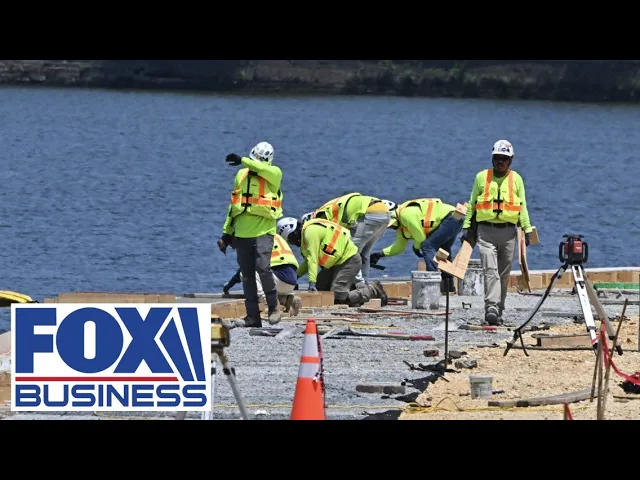This perception of blue collar jobs is ‘gone’ amid AI job sweep, journalist says

Blue collar jobs escape the AI revolution
In a shifting technological landscape where artificial intelligence dominates headlines and threatens white-collar knowledge workers, a counterintuitive trend has emerged. Blue-collar jobs, long stigmatized as less desirable or prestigious career paths, are experiencing a renaissance of sorts—offering stability, meaningful work, and crucially, immunity from the first wave of AI disruption. This perception shift represents a significant realignment in how society values different types of labor.
Key insights from the discussion:
-
Role reversal: While AI threatens knowledge work traditionally considered "safe," physically-oriented blue-collar jobs remain largely protected from automation due to their complex manual skills.
-
Economic recalibration: The scarcity of qualified trade workers has driven wages upward, with many skilled trades now offering compensation that rivals or exceeds that of college-required positions without accompanying student debt.
-
Cultural shift: The pandemic accelerated the recognition of essential workers' importance, catalyzing a broader reevaluation of which jobs truly deliver value to society.
-
Education realignment: More young people are considering trade schools and apprenticeships as viable, pragmatic alternatives to traditional four-year degrees.
-
Dignity of work: Blue-collar professions are being reframed as skilled crafts that provide tangible satisfaction and clear purpose.
The persistence of physical work in a digital world
Perhaps the most profound insight is how AI's limitations have inverted traditional job security hierarchies. Knowledge workers—lawyers, coders, writers, financial analysts—suddenly find themselves vulnerable to technologies like GPT-4 and other large language models that can perform cognitive tasks with increasing sophistication. Meanwhile, electricians, plumbers, construction workers, and other trades require physical dexterity, situational judgment, and environmental adaptation that remain extraordinarily difficult to automate.
This matters tremendously because it challenges decades of career guidance that pushed young people toward desk jobs and away from manual labor. The conventional wisdom that automation would primarily eliminate factory and service jobs has proven simplistic. Instead, we're witnessing that embodied intelligence—the integration of physical skill with contextual problem-solving—represents a form of human capability that AI cannot easily replicate.
Reconsidering vocational education
This shift demands a reevaluation of our educational priorities. While STEM education
Recent Videos
How To Earn MONEY With Images (No Bullsh*t)
Smart earnings from your image collection In today's digital economy, passive income streams have become increasingly accessible to creators with various skill sets. A recent YouTube video cuts through the hype to explore legitimate ways photographers, designers, and even casual smartphone users can monetize their image collections. The strategies outlined don't rely on unrealistic promises or complicated schemes—instead, they focus on established marketplaces with proven revenue potential for image creators. Key Points Stock photography platforms like Shutterstock, Adobe Stock, and Getty Images remain viable income sources when you understand their specific requirements and optimize your submissions accordingly. Specialized marketplaces focusing...
Oct 3, 2025New SHAPE SHIFTING AI Robot Is Freaking People Out
Liquid robots will change everything In the quiet labs of Carnegie Mellon University, scientists have created something that feels plucked from science fiction—a magnetic slime robot that can transform between liquid and solid states, slipping through tight spaces before reassembling on the other side. This technology, showcased in a recent YouTube video, represents a significant leap beyond traditional robotics into a realm where machines mimic not just animal movements, but their fundamental physical properties. While the internet might be buzzing with dystopian concerns about "shape-shifting terminators," the reality offers far more promising applications that could revolutionize medicine, rescue operations, and...
Oct 3, 2025How To Do Homeless AI Tiktok Trend (Tiktok Homeless AI Tutorial)
AI homeless trend raises ethical concerns In an era where social media trends evolve faster than we can comprehend them, TikTok's "homeless AI" trend has sparked both creative engagement and serious ethical questions. The trend, which involves using AI to transform ordinary photos into images depicting homelessness, has rapidly gained traction across the platform, with creators eagerly jumping on board to showcase their digital transformations. While the technical process is relatively straightforward, the implications of digitally "becoming homeless" for entertainment deserve careful consideration. The video tutorial provides a step-by-step guide on creating these AI-generated images, explaining how users can transform...
